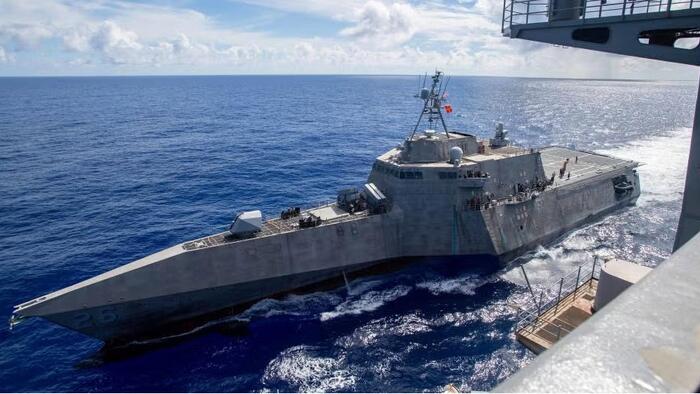In a significant move for the U.S. shipbuilding industry, Hanwha Ocean Company acquired Philly Shipyard for $100 million earlier this year. Initially, the acquisition went largely unnoticed by the public, but it has critical implications for the U.S. Navy. The investment comes amid heightened calls from American defense experts and government officials for foreign shipbuilders from allied nations to help reinvigorate a beleaguered shipbuilding sector that has seen better days. Navy Secretary Carlos Del Toro has expressed enthusiasm over the deal, deeming it a “game-changing milestone” that could enhance America’s “Maritime Statecraft.” This transaction is expected not only to support the local economy in Philadelphia but also to bolster the capabilities of the U.S. Navy.
The repercussions of Hanwha’s investment have been quick and positive. Just a few months after the acquisition, Hanwha secured a critical annual contract for Navy maintenance, repair, and overhaul (MRO) services. This contract will address a significant maintenance backlog that has troubled the Navy, contributing to delays in shipbuilding and cost overruns. According to a 2022 report by the Government Accountability Office, the Navy’s maintenance backlog stands at a staggering $1.8 billion, severely hampering combat readiness. The current administration, under President Biden, has been criticized for misallocating resources and lacking urgency in addressing these systemic challenges. The inefficiencies have even led to the premature decommissioning of nine vessels, further underscoring the urgency of the situation.
The acquisition by Hanwha not only aims to rectify the existing issues within the Navy but also opens doors for new opportunities in shipbuilding. Philly Shipyard is well-positioned to compete for contracts to manufacture Constellation-class frigates, currently being produced exclusively at Marinette Marine in Wisconsin. The first Constellation-class frigate is scheduled to set sail in 2029. As Navy leadership pushes for an increase in the construction of missile-guided frigates, Hanwha’s partnership with Philly Shipyard can provide needed support, potentially leading to significant job creation in the area and strengthening US naval capabilities.
This revitalization of the Philly Shipyard marks a positive shift in an industry ripe for growth and modernization. It highlights the necessity of resuming domestic industrial undertakings to strengthen the defense industrial base while prioritizing American workers. The acquisition’s timing is particularly advantageous, as it encourages reflection on broader strategies that can fortify the U.S. Navy and shipbuilding sector. As the shipyard expands, a new workforce will have to be recruited, fostering local economic growth and stability. This shift in focus offers an optimistic view of how strategic partnerships can yield tangible benefits for American workers and enhance national security.
To maintain and build upon this invigorated momentum, it’s imperative that policymakers take proactive steps. Initiatives to create maritime prosperity zones, address labor shortages, and reduce regulatory burdens will be essential in promoting further investments and expansion in naval infrastructure, particularly at Philly Shipyard. These considerations are critical for encouraging a sustainable and robust defense industrial base. Such policies not only stimulate economic activity but also ensure that the Navy remains equipped to face the numerous challenges ahead, particularly as geopolitical tensions escalate.
In conclusion, the Hanwha acquisition of Philly Shipyard signifies more than a simple business transaction; it represents a crucial juncture in the ongoing endeavor to restore the efficacy of the U.S. shipbuilding industry. The future of maritime power will increasingly depend on the capacity to rectify inefficiencies and adequately prepare for impending global challenges. As the first battle in the ongoing competition for global dominance is likely to be fought in revitalizing our domestic capabilities, focusing on local shipbuilding facilities like Philly Shipyard is fundamental. Ensuring appropriate resources, policies, and strategic focus will be necessary to guarantee that the United States can meet its national security imperatives in a rapidly changing world.

